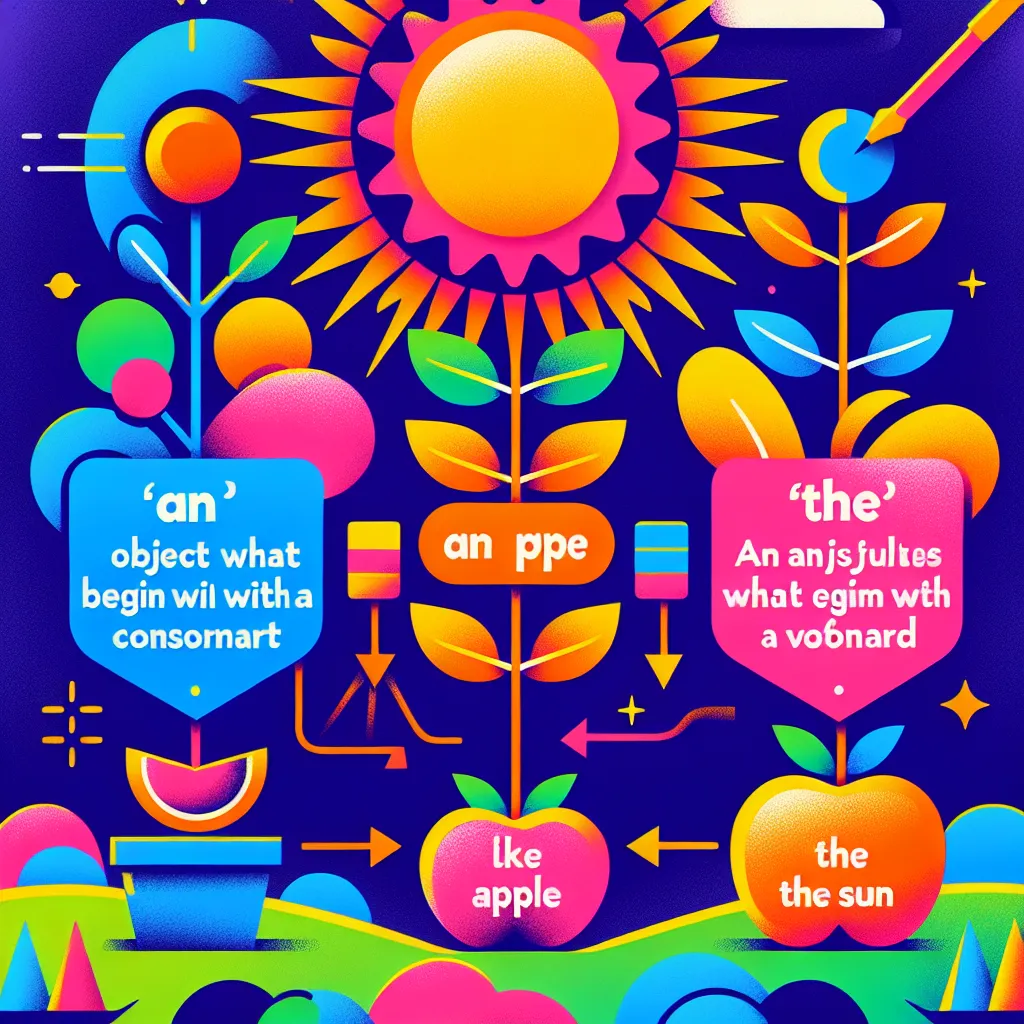Mastering the use of articles in English is a crucial aspect of language learning that can significantly enhance your overall proficiency. Whether you’re a beginner or an advanced learner, understanding when and how to use ‘a’, ‘an’, and ‘the’ correctly can be challenging. This guide will provide you with effective strategies and practical tips to help you improve your article usage and boost your English grammar skills.
Understanding the Importance of Articles
Articles are small words that play a big role in English grammar. They are used to specify whether we’re referring to a specific or general noun. Proper use of articles can greatly improve the clarity and precision of your communication.
Types of Articles in English
- Definite Article: ‘The’
- Indefinite Articles: ‘A’ and ‘An’
 English Articles
English Articles
Rules for Using Articles
1. Using ‘The’
‘The’ is used when referring to a specific noun that both the speaker and listener are aware of. It can be used with singular, plural, and uncountable nouns.
Examples:
- The book on the table is mine. (A specific book)
- The students in my class are very intelligent. (Specific group of students)
- The water in this lake is crystal clear. (Specific body of water)
2. Using ‘A’ and ‘An’
‘A’ and ‘An’ are used when referring to a general or non-specific noun. ‘A’ is used before words that begin with a consonant sound, while ‘An’ is used before words that begin with a vowel sound.
Examples:
- I need a pen. (Any pen, not a specific one)
- She’s an engineer. (One of many engineers)
- He bought a house and an apartment. (Non-specific house and apartment)
Common Mistakes and How to Avoid Them
-
Omitting articles: Non-native speakers often forget to use articles. Always consider whether a noun needs an article.
Incorrect: I saw cat.
Correct: I saw a cat. -
Using ‘the’ with general nouns: When talking about things in general, don’t use ‘the’.
Incorrect: The life is beautiful.
Correct: Life is beautiful. -
Confusing ‘a’ and ‘an’: Remember, it’s the sound, not the spelling that determines which to use.
Incorrect: a hour, an university
Correct: an hour, a university
Practical Exercises to Improve Article Usage
-
Gap-fill exercises: Practice with sentences where you need to fill in the correct article.
-
Reading aloud: Pay attention to article usage in texts and practice reading them aloud.
-
Writing practice: Write short paragraphs focusing on using articles correctly.
-
Listening exercises: Listen to native speakers and note how they use articles in different contexts.
 Article Practice
Article Practice
Advanced Tips for Mastering Articles
-
Learn the exceptions: There are many exceptions to article rules. For example, we don’t use articles with most proper nouns (e.g., “John went to Paris”).
-
Understand countable vs. uncountable nouns: This distinction often affects article usage. For instance, “I need advice” (no article) vs. “I need a piece of advice”.
-
Pay attention to idiomatic expressions: Some phrases have fixed article usage, like “in the morning” but “at night”.
-
Practice with academic texts: Scholarly articles often have complex article usage that can help you refine your skills.
For more tips on improving your overall English skills, check out our guide on how to practice English writing with prompts.
Conclusion
Mastering the use of articles in English takes time and practice. By understanding the basic rules, being aware of common mistakes, and engaging in regular practice, you can significantly improve your article usage. Remember, even native speakers sometimes struggle with articles, so don’t get discouraged. Keep practicing, and you’ll see improvement over time.
To further enhance your English language skills, consider exploring our articles on effective techniques for memorizing English vocabulary and tips for mastering English in casual conversations.




